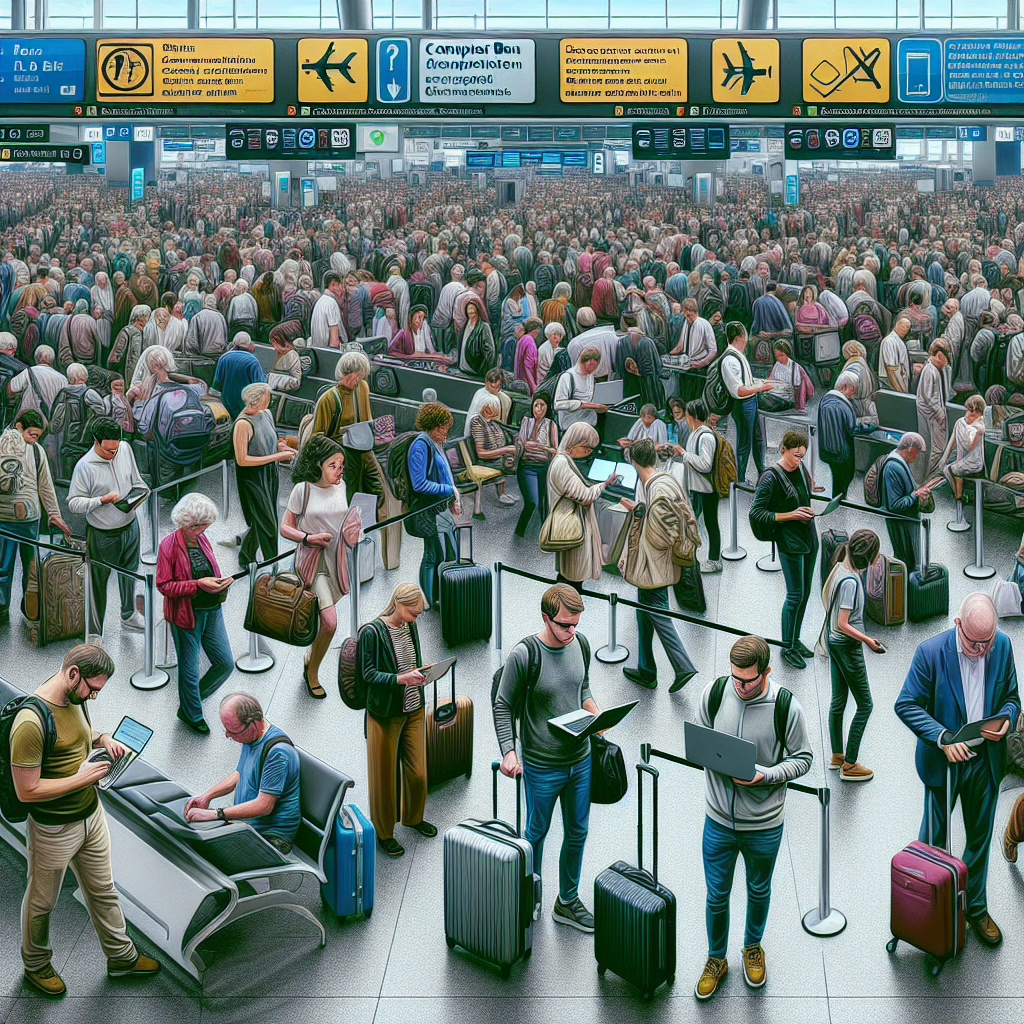Imagine you’re at the airport, about to embark on a grand adventure, when suddenly you’re told that your laptop must stay behind. Welcome to the surreal world of travel restrictions where your trusty computer gets more detention time than a high school student caught texting in class. The computer ban has become a hot topic among travelers, sparking debates on fairness, practicality, and just how much we can endure in the name of security.
The Nitty-Gritty of the Computer Ban
In 2025, the computer ban continues to loom large over international travelers. Initially implemented as a security measure, it restricts passengers from bringing larger electronics into the cabin on certain flights. While authorities insist it’s all about keeping us safe from potential threats, many are left scratching their heads (and possibly their wallets) over how this is actually supposed to work.
Consider this: you’re packing your bags and trying to decide which of your gadgets deserves a seat beside you on the plane. You pick your tablet because it’s lighter and easier to handle. But wait! Your laptop is essential for work, streaming cat videos, and everything in between. This ban seems less like a safety measure and more like a game of ‘which gadget can you live without.’ Not to mention that leaving your devices in checked baggage feels akin to sending your precious electronics off to summer camp—without any adult supervision!
The Impacts of Tech Policies on Travelers
Travelers have voiced their frustrations over these tech policies. Mahmoud Khalil, a frequent flyer affected by the restrictions, shared his experience of being forced to leave his laptop behind during an overseas trip. Khalil’s dilemma highlights the absurdity of banning computers while allowing other devices like smartphones and tablets onboard. It seems like an arbitrary rule designed more for confusion than actual safety.
Moreover, these restrictions disproportionately affect those who rely on their laptops for work or personal matters. Imagine being a digital nomad or a business traveler whose entire livelihood hinges on having access to their computer. The computer ban feels like taking away someone’s toolbox and expecting them to fix things with just duct tape and hope.
Reevaluating Security Measures: Is It Time for Change?
The question arises: are these measures effective? Various studies indicate that threats evolve faster than our policies can adapt. Instead of implementing blanket bans that leave travelers feeling inconvenienced, wouldn’t it be more effective to focus on enhanced security screenings? Perhaps we could invest in technology that detects potential threats without sending our electronics into exile.
As we move further into 2025, there’s an increasing call for fairer regulations regarding travel (tech policies). Travelers deserve clarity and consistency rather than confusion and frustration when flying. After all, we’re already dealing with long lines, crowded terminals, and overpriced snacks—let’s not add unnecessary hurdles related to our gadgets!
A Call for Traveler Empowerment
What if we empowered travelers instead? Imagine a world where you could bring your laptop on board without fear of it being held hostage in the cargo hold. How about improved education on what constitutes a threat? By fostering a collaborative approach between airlines and passengers, we could develop better strategies that protect everyone without resorting to draconian measures.
While it may seem like the computer ban is here to stay for now, we must continue advocating for change. After all, technology should enhance our travel experiences rather than hinder them. So next time you’re at the airport contemplating which device will join you on your journey, remember: we’re all in this together! Let’s push for progress while keeping our fingers crossed that common sense prevails.
Your Experience Matters: Join the Conversation!
In conclusion, whether you’re a casual traveler or an avid globetrotter, sharing thoughts on how (tech policies) affect our journeys is vital. We invite you to drop your insights in the comments below! Your experiences can help shape future discussions around travel regulations.
A big thank you goes out to Wired for shedding light on this important issue!

